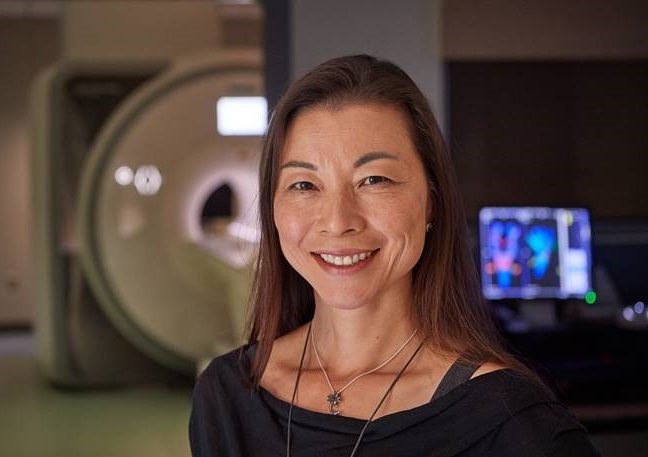Background
Fumiko Hoeft MD, PhD is a Professor of Psychological Sciences, Director of the Brain Imaging Research Center (BIRC) at UConn, and Director of Laboratory for Learning Engineering and Neural Systems (brainLENS) at UConn/University of California San Francisco. She is a psychiatrist and neurophysiologist by training, turned developmental cognitive neuroscientist. Hoeft has research interests in the neurobiological systems responsible for brain maturational processes, and skill acquisition such as the literacy, and how these mechanisms interact. “In terms of what we do in our lab, we emphasize three major pieces: basic research, applied research and outreach/dissemination,” explains Hoeft. The lab has a broad scope of research projects underway, studying topics such as circuit-based plasticity, testing the neural noise hypothesis of dyslexia (a reading-based learning disability) that we proposed, and developing growth charts for brain network. “We’re interested in early risk factors for dyslexia, the role of nature and nurture, and how to prevent developing poor reading if you are at risk. We look at the deficits and the causes, but also how some people are more resilient,” Hoeft says.
Hoeft completed her undergraduate schoolwork, medical school degree and PhD at the Keio University School of Medicine in Tokyo, Japan. Upon completing her studies, Hoeft decided to complete a postdoc in Psychology at Stanford. “I was just thinking that I would do research for a year or so in the United States to see what it’s like to do research and then go back, but I ended up staying and it’s been 23 years since,” explains Hoeft. While her work was initially focused on neurobiology and benchwork, Hoeft “missed the clinical aspect of research.” At Stanford, Hoeft’s postdoc supervisor was working on dyslexia research, a topic the piqued her interest. “Maybe it was meant to be; maybe I was implicitly drawn to it,” says Hoeft about her journey to find her passion. From then on, Hoeft focused her research on work around reading difficulties and the brain.
Hoeft is currently planning the Bridging Reading and Intervention with Neuroscience (BRAIN) Camp. BRAIN Camp is an all-inclusive free summer day-camp for rising 3rd and 4th graders who need extra help with reading. This camp will study children in a school-like environment and Hoeft’s team will gather information about how instruction changes the brain so that teaching can be improved. The camp will be held during the summer of 2021.
Involvement with CSCH
Hoeft joined CSCH because she believes that her work is greatly aligned with the mission of the Collaboratory. “It’s a natural connection – I do a lot of kids research and outreach, and work with educators and students in schools,” says Hoeft. She also notes the collective nature of the work done in the CSCH. “It felt like everyone shares the same research interest and vision; in my case spreading the love of science and brain science,” she says.
Fun Facts
Hoeft has an identical twin sister in California who works as an investor. “People say that we even laugh alike!” says Hoeft. Follow Hoeft on Twitter: @fumikohoeft.
